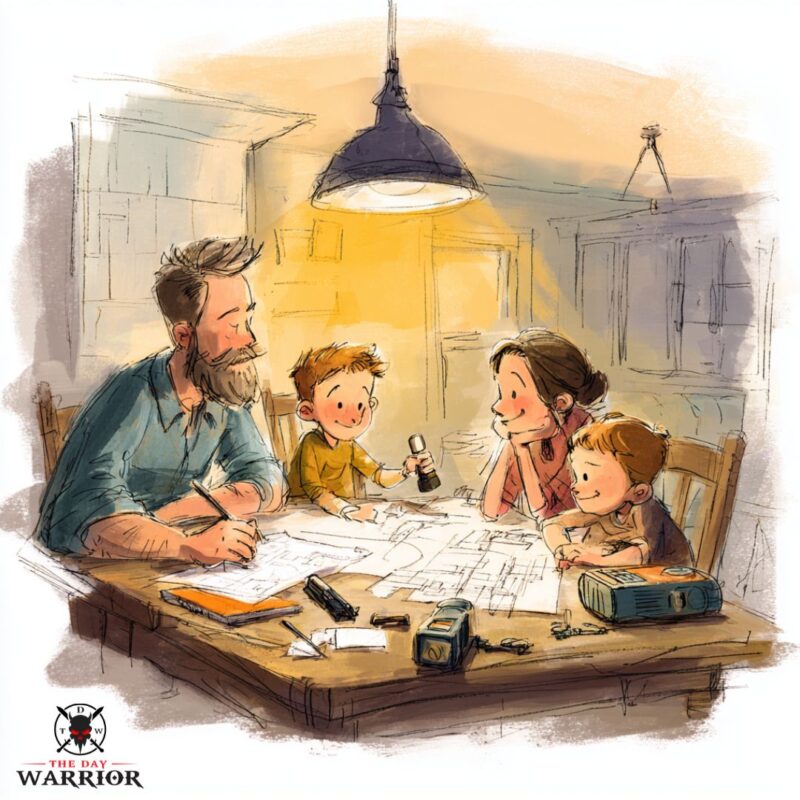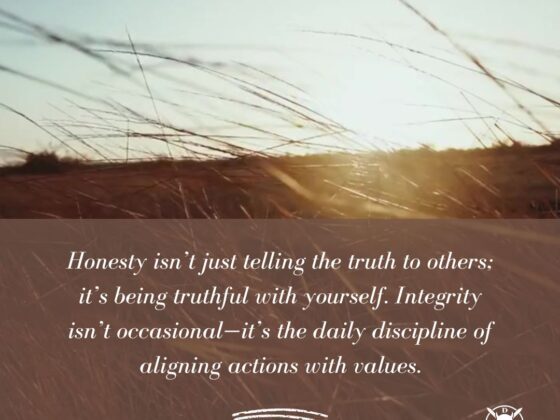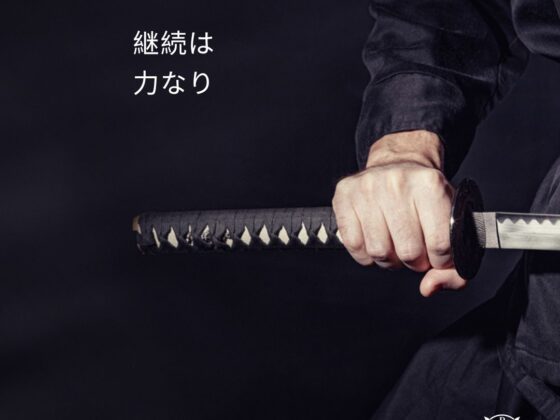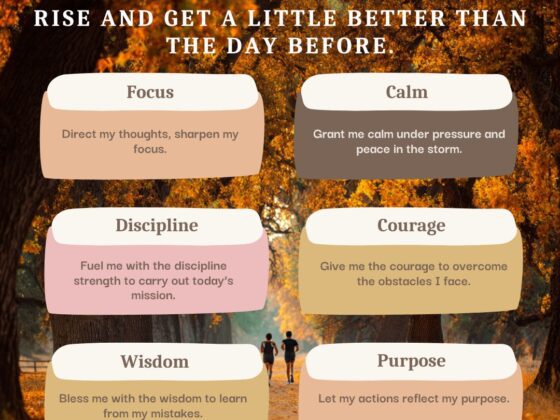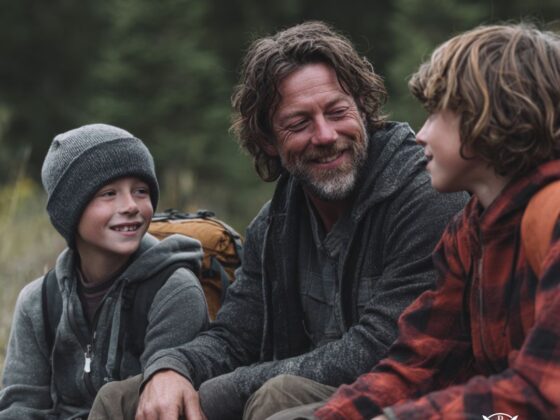“You are the first responder. You are the protector of your home. You are the one responsible for the safety of your family.”
— John Lovell, Warrior Poet Society
Never outsource your family’s safety.
Be the steady presence your children can count on.
Modern life wants you to delegate everything: your meals, your errands, your thinking, and even your protection.
However, there is one role you cannot outsource.
That’s the role of the protector.
You are the ultimate line of defense for your home.
Your presence, strength, and awareness are what anchor your family in safety—physically, emotionally, and mentally.
Protection Isn’t Just Physical
Being a protector is not just about having the strength to confront a threat.
It’s also about emotional fortitude, spiritual steadiness, and the ability to bring calm into chaos.
Your family needs more than locks on the doors.
They need you—calm under pressure, confident in decisions, consistent in character.
Outsourcing Weakens the Foundation
When we rely entirely on external systems—schools, law enforcement, security gadgets—to protect what matters most, we send the wrong message to our children: “Someone else is responsible for your well-being.”
That mindset creates passive, dependent adults.
But your job as a father is to raise strong, capable, discerning children.
That starts with modeling what it means to be self-reliant and alert.
Here’s What Being the Ultimate Protector Looks Like
We’ve all seen the movies where the hero steps up at the last second to save the day. But in the real world, protection is not just about big moments—it’s about the quiet, consistent habits that build strength, clarity, and leadership over time.
Being the ultimate protector isn’t a switch you flip.
It’s a lifestyle you live every day.
Let’s break it down with real-life examples:
1. Be Physically Ready
Train your body so you can carry your child to safety, fight if necessary, or endure long hours when the unexpected happens.
Your strength is not for show—it’s for service.
A protector takes care of his body because others depend on it.
You don’t need to be a Navy SEAL, but you do need to be strong enough to carry your child if there’s a fire. Fit enough to chase down your kid if they dart across a parking lot. Healthy enough to play, wrestle, or hold them through the night when they’re sick.
Real example:
In my newsletter, I talk about stacking small victories—like morning walks or short resistance workouts. These aren’t just for you. They keep your body strong so you can continue to show up.
You don’t rise to the occasion—you fall to the level of your preparation.
2. Be Mentally Prepared
Read. Think. Plan.
Know how to react in an emergency, but more importantly—know how to lead under stress.
The mind is the command center of protection.
A protector thinks ahead:
What would I do if the power goes out?
What if my kid gets lost at a store?
What’s my plan if there’s a break-in?
Real example:
Practice fire drills at home with your kids. Not to scare them, but to empower them. That’s what leadership looks like: teaching courage, not fear.
Think about how overthinking and distraction are modern threats to our focus. A protector learns to quiet the noise and act with clarity.
Mental chaos creates physical vulnerability.
3. Build Emotional Fortitude
A protector doesn’t just shield from danger—he shields from chaos.
Stay calm when others panic. Speak the truth when fear spreads. Create emotional stability. True protectors don’t just shield against external threats—they stabilize internal storms.
When your child melts down.
When your partner breaks down.
When life throws the unexpected at you, how do you respond?
If your answer is anger, avoidance, or collapse, you’re not protecting; you’re adding to the chaos.
Emphasize the importance of showing your kids what it looks like to stay calm under pressure. Emotional strength is leadership. It’s the ability to create peace when everything feels uncertain.
Real example:
After a long day at work, I used to snap at my kids when they asked for attention. Now, I take three deep breaths at the door before walking in—I reset myself to be the calm they need. Instant perfection is not the goal, but continuous improvement over time.
Your kids won’t remember every word you say—but they’ll feel the weight of your presence.
4. Teach Situational Awareness
Talk with your kids about being alert—not anxious.
Help them build confidence in reading situations, listening to their instincts, and standing tall. Being aware is the first step in being prepared.
Instead of saying “Don’t talk to strangers,”
Teach your kids to recognize red flags and trust their instincts.
Instead of “Be careful,”
Explain why you park near lights at night.
Talk about how to stay safe in a crowd.
Let them see how you move with awareness.
In my Write to Figure Out Where You’re Going newsletter, I talked about mapping your life deliberately. Protection is no different—it requires thought, planning, and communication.
Real example:
I have a good friend who creates “what would you do?” games during car rides and family travel.
He poses scenarios and walks through them together. It became fun and formative.
Protection isn’t paranoia—it’s preparedness.
5. Prioritize Presence Over Perfection
Your kids don’t need a flawless superhero.
They need to see you try, every single day.
To show up. To keep your promises. To hold the line when it counts.
Being present is your most powerful protective trait.
Kids aren’t looking for perfect parents.
They’re looking for available, invested ones.
Are you home, but always on your phone?
Are you physically there, but emotionally checked out?
Real example:
As dad, start putting your phone in a drawer from dinner until bedtime. It’s only two hours, but to your kids, it feels like you’re giving them the world.
Protection starts with presence.
A Final Reminder
The world can add security cameras.
Your home can be insured.
But your family cannot replace you.
Don’t wait for a crisis to realize how much your steady presence matters.
Protecting your family isn’t paranoia.
It’s fatherhood.
Become the protector your family deserves.
Not just in muscle, but in mindset.
The Day Warrior
How to find more content from The Day Warrior: https://thedaywarrior.bio.link
If you enjoyed this newsletter, please subscribe.
If you want to provide feedback, please take The Day Warrior Survey.
If you want to have a deeper discussion about this subject, please get in touch with The Day Warrior.
Follow me on X for daily short and long-form content: @thedaywarrior.
My LinkedIn information is here: https://www.linkedin.com/in/the-day-warrior/
I am also on Instagram: @thedaywarrior.
My website is http:/thedaywarrior.com.
“Never blindly accept what you read online. Always challenge it with an open and critical mind.”
– The Day Warrior
